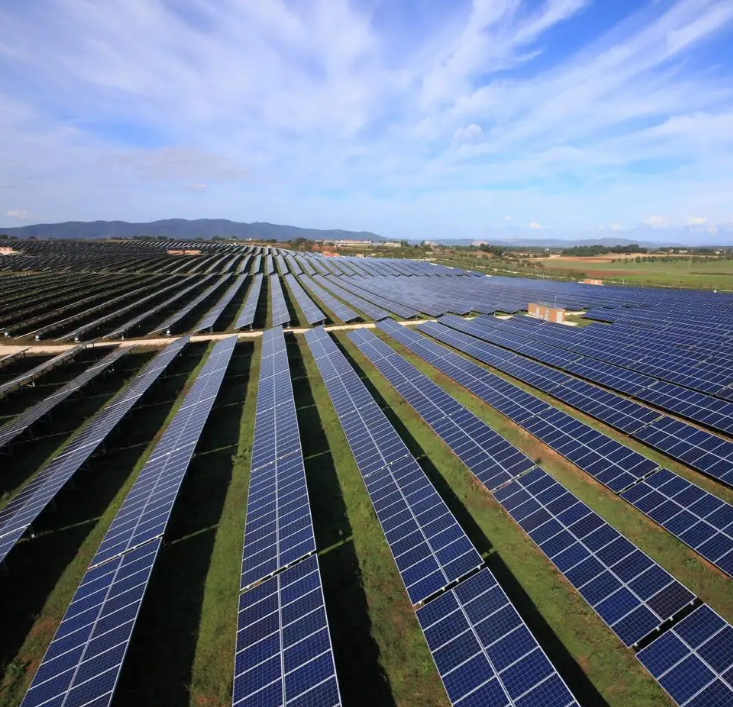Recently, the latest market analysis report said that under the influence of many factors, European people hope to control the cost of household electricity by improving the self-sufficiency of electricity, so photovoltaic power generation system is very popular, attracting a large number of funds into the photovoltaic market. However, if the European photovoltaic market wants to continue to attract capital, it needs to show good performance, which is very difficult for photovoltaic companies with large fluctuations in yields. Statistics from Avent Abacus, an
industry consultancy, show that in the first five months of 2023, European photovoltaic start-ups raised $6 billion, an increase of 398% over the same period in 2022, reaching 83% of the total financing in 2022.
Although the development trend of European photovoltaic financing is consistent with the overall global development trend, in the view of Avent Abacus, the confidence of European capital market in photovoltaic is still insufficient. At present, the contribution of photovoltaic power to Europe's total power generation capacity is limited, accounting for only 7.6% of Europe's total power generation, less than wind power.

Avent Abacus believes that the increasing demand for photovoltaic power generation in the electricity consumption market is the main reason for the influx of capital. Solar analyst Jenny Chase said: The European energy crisis has led to a sharp rise in electricity prices, and consumers can reduce the cost of household energy by installing photovoltaic power generation systems. The capital market smelled the opportunity and triggered a small climax of investment in photovoltaic start-ups.
It is understood that European households and businesses are under great pressure to pay electricity bills. In 2022, the European energy inflation rate once exceeded 40%, and in 2023 it was around 17%, which has not yet eliminated the risk of market premium. European countries have to take measures to allocate special funds to subsidize household and enterprise electricity consumption and reduce the pressure of social energy cost expenditure.
Electricity is more expensive. Bernd Arsenault, managing partner of eCapital Partners, a German venture capital firm, said that today, consumers are more aware of energy conservation than ever before, making photovoltaics a hot spot for investment.
However, many industry research companies believe that the influx of capital into photovoltaic is not a spontaneous behavior under the positive development of market economy, but a forced choice after the emergence of special social background and problems. At this stage, European electricity prices are still at a high level, but what will happen when electricity prices fall? Energy prices can't be stable for long, says Jenny Chase. Jan Michael Hess, chief executive of Ecosummit, a photovoltaic start-up with a wide
range of
yield fluctuations, said that only companies with obvious development results and high quality can be favored by capital. The scale of the last round of financing and the results of project construction will determine the scale of the next round of financing, once the performance is not as good as expected, it will be difficult to attract new investment.

Stable rate of return is the main criterion for investors to decide whether to invest or not. Julia Padberg, a partner at SET Ventures, a venture capital firm in Amsterdam, pointed out that some of the companies we have invested in before have achieved record performance, which is the main reason why their investment will continue to grow in the future.
It is important to note that not all companies are successful. SET Ventures has also divested from some renewable-energy-related projects. At the same time, even though more and more consumers agree with the value of photovoltaic power generation, self-use household roof photovoltaic is only a form of investment, and can not meet all the electricity demand of households, enterprises or factories with large electricity consumption. In the future, the overall competitiveness of photovoltaic power in the energy market will affect the favor of capital for photovoltaic. In early
July, negative electricity prices appeared in the electricity trading markets of Germany, the Netherlands, Denmark and other European countries. According to the analysis, this was mainly due to the recent surge in photovoltaic installed capacity in Europe and the excess supply of green electricity. Although this benefits consumers, photovoltaic power generation companies will not be able to obtain subsidies from the contract for difference mechanism during the negative tariff period. In order to reduce losses, many photovoltaic power plants choose to suspend power generation. In the future, sustained large fluctuations in electricity prices will become the norm, if photovoltaic enterprises can not solve the problem of large fluctuations in yields, it will undoubtedly affect financing.
At present, the strategic investment of traditional energy enterprises in the field of new energy and the incubation investment of venture capital companies in new enterprises are the main financing channels for European photovoltaic enterprises. Although listing and other ways can also be financed, due to the small scale of European photovoltaic enterprises and the low valuation of the stock market, the financing channels of European photovoltaic enterprises are relatively single, and most of them are also facing the fate of being acquired.

For example, Sonnen, a German company specializing in distributed photovoltaic market, has gained many investors, and after several years of development, it was eventually acquired by Shell, an international oil and gas giant. Bernd Arsenault believes that without the support of capital and management capabilities of large enterprises, the growth process of photovoltaic enterprises will be lengthened.
This is in sharp contrast to DHP, a Swiss photovoltaic company that still chooses to develop independently after receiving investment. Gian Andridiem, co-founder of DHP, said: With funding, growth is not a problem. In the past three years, we have delivered 16 projects and 35 projects are in progress. However, how to expand the size of the company's personnel and support the smooth progress of future projects is indeed a challenge. Even so, European photovoltaic companies still have opportunities to develop, said Andreas Schwarzenbrenner, a partner at Speedinvest, an
investment firm. Photovoltaic is the key to future energy supply, and the fundamentals of industrial development are good. If European photovoltaic companies can continue to promote technological and business model innovation, they can still attract large-scale financing in the future.



 浙公网安备33010802003254号
浙公网安备33010802003254号